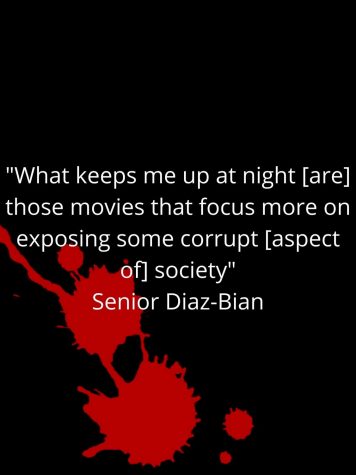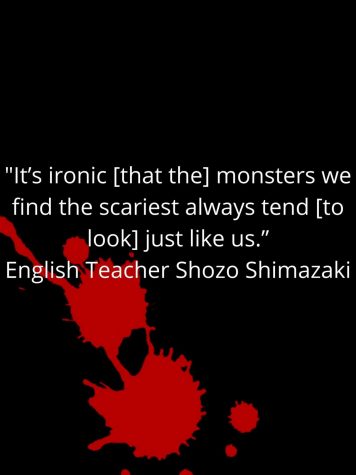Horror is not for everyone
The MVHS community share their opinions on the horror genre

The iconic scream mask | used under creative commons
October 22, 2021
The young woman turns the corner hesitantly. She looks pale and is covered in a sheen of sweat. Her body is trembling as she inches her way down the hall, an old phone clutched in one hand. Once an average teenager, eating with friends and hanging out at the mall in her peaceful, tight-knit community, now, she finds herself fighting for her life, trying to escape the psychopath in the white ghost mask terrorizing her.
The terrified young girl hears a thump from a door at the end of the hallway. She checks out what is behind the door …
This scene from the psychological horror film “Scream” follows the protagonist Sydney Prescott played by Neve Campbell as she tries to identify the mystery person stalking her at home.
Senior Patricia Diaz-Bian recalls watching the movie at the behest of her best friend during their stay at a hotel in Florida for a dance competition. But five minutes after the movie began, she predicted the ending of what she believed to be a one-dimensional and “cheap” attempt at terror because of the lack of plot development.
While Diaz-Bian says she does not find the jump scares used in many horror movies terrifying, English teacher Melissa Clark says she can’t handle horror for precisely those scenes.
“The first thing that comes to mind when I think of horror is the moment something leaps out [at] you,” Clark said. “A lot of horror movies now are very graphic. In terms of blood and gore, a lot of movies tend to rely upon that a little bit too much. And I am definitely the [type of] person that can’t stand blood and I get really squeamish.”
English teacher Shozo Shimazaki similarly believes that the horror genre tends to rely too heavily on climax scenes without any actual plot development. Unlike Clark, he doesn’t strongly dislike scary movies, but is still not a fan of the genre, as he feels the films tend to seem rushed.
However, one movie Shimazaki believes illustrates the highlights of the horror genre is the 2018 film “A Quiet Place.” He was impressed by the filmmakers ability to create an interesting story and climax even without dialogue, since the premise of the movie revolves around the characters remaining silent.

Diaz-Bian believes that she would enjoy the horror genre if there were more real-world connections so the audience would be able to relate to the film, such as in the thriller movie “Parasite.”
“What keeps me up at night [are] those movies that focus more on exposing some corrupt [aspect of] society,” Diaz-Bian said. “It’s because they show you something that could happen rather than, ‘Oh, there’s gonna be some dead man with a rotting corpse — he’s gonna jump out at you.’ [That’s] too cliche and detached from reality for you to really keep thinking about it long after the movie is over.”
Although Clark doesn’t find the genre appealing, she acknowledges why society is captivated by the twisted concepts and dark themes often presented in the horror genre.
“I do think the horror genre is fascinating just on its own,” Clark said. “And although it conflicts with my personal opinion, I think it’s important that we have [horror] as a genre in our cinematic universe because of what it reveals about us. I think what you can see in a lot of older, more classic horror flicks [is] that a lot of the villains, and a lot of the main characters, have these twisted characteristics that we as humans naturally have, but they just pushed a little bit too far. It’s what makes them so terrifying as they become more realistic and we relate to them more.”

Shimazaki also reflects on the literary aspect of horror and what it reveals about society.
“We see the many versions of monsters throughout the literature we read,” Shimazaki said. “And when we analyze these horrific creatures in our books and movies it always relates back to some form of humanity. And even though I wouldn’t say I’m a huge horror movie watcher, I think the reason a lot of people end up enjoying the genre stems from our morbid sense of curiosity that attracts many people to that dark stuff being represented because of how similar it is to us as [a] society. It’s ironic [that the] monsters we find the scariest always tend [to look] just like us.”
















